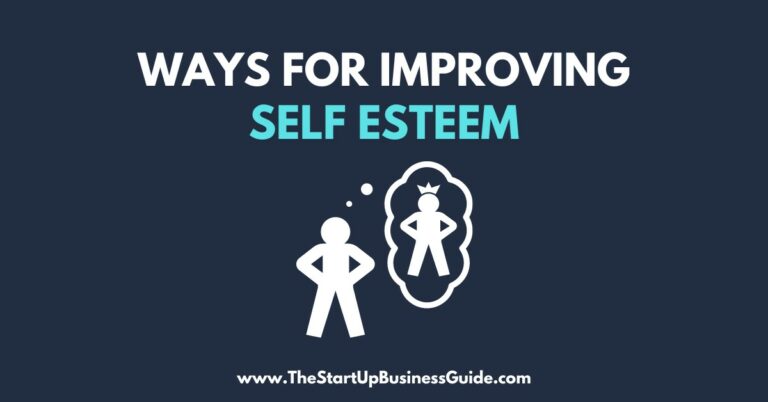20 Effective Ways to Improve Time Management Skills

Time management is a vital skill for success in both personal and professional life.
Being able to effectively manage your time can help you achieve more in less time, reduce stress, and improve your overall well-being.
However, developing good time management skills takes effort and practice.
In this blog post, we will provide 20 tips for improving your time management skills.
1. Prioritize Tasks
One of the most important aspects of time management is being able to prioritize tasks effectively.
This means determining which tasks are most important and which can wait.
The Eisenhower matrix is a great tool for prioritizing tasks.
It helps you to categorize tasks based on their level of importance and urgency.
Tasks that are both important and urgent should be handled immediately, while tasks that are important but not urgent should be scheduled for later.
Tasks that are not important or urgent can be delegated or eliminated.
2. Create a To-Do List
Creating a daily to-do list is a great way to keep tasks organized and provide a sense of accomplishment as you check off items.
To create an effective to-do list, start by setting realistic deadlines for completing each task.
Break down larger tasks into smaller, more manageable ones.
Be sure to prioritize your tasks so that you tackle the most important ones first.
3. Eliminate Distractions
Distractions are the enemy of productivity.
Social media, email notifications, and other distractions can pull your attention away from the task at hand.
To eliminate distractions, try using a website blocker or setting designated times for checking email.
This will help you focus on the task at hand and increase your productivity.
4. Use a Calendar
Using a calendar is a great way to keep track of deadlines, appointments, and other important events.
To use a calendar effectively, set reminders for upcoming deadlines and appointments.
Syncing your calendar with other devices can also be helpful so you can access it on the go.
5. Take Regular Breaks
Taking regular breaks is essential for preventing burnout and increasing productivity.
Breaks give your brain a chance to rest and recharge.
Try taking short breaks every hour or so to stretch, go for a walk, or do something else that will refresh your mind.
6. Delegate Tasks
Delegating tasks is a great way to allow more time for important tasks and increase team productivity.
To delegate effectively, clearly communicate expectations and provide necessary resources.
It’s also important to trust your team members to complete the task in the best possible way.
7. Avoid Multitasking
Multitasking is often seen as a way to increase productivity, but research has shown that it can actually slow you down.
The human brain is not wired to handle multiple tasks at once.
Instead, try focusing on one task at a time.
If you need to switch between tasks, use the Pomodoro technique to break your work into shorter, focused intervals.
8. Set Goals
Setting goals is essential for providing motivation and direction.
When setting goals, be specific, measurable, and set a deadline.
Having a clear destination in mind will help you stay on track and make better use of your time.
9. Keep a Journal
Keeping a journal can be a great way to reflect on your progress and identify areas for improvement.
To keep an effective journal, try writing consistently and focusing on specific topics.
This will help you stay organized and focused on your goals.
10. Optimize Your Workspace
The environment in which you work can have a big impact on your productivity.
To optimize your workspace, declutter, ensure you have good lighting and ergonomic furniture.
A clean, well-organized workspace can help improve focus and reduce stress.
Make sure your desk is clear of unnecessary items and that your chair and computer monitor are at the proper height to reduce strain on your eyes and back.
Furthermore, consider incorporating plants or other natural elements into your workspace for added tranquility.
11. Use Time Tracking Apps
Time tracking apps can be a great tool for identifying time-wasting activities and setting realistic deadlines.
Popular time tracking apps include Toggl and RescueTime.
These apps allow you to track how much time you spend on specific tasks and projects, giving you valuable insights into where you might be able to improve your time management.
12. Learn to Say No
Learning to say no is an important part of time management.
Saying yes to everything can lead to over-commitment and burnout.
To say no effectively, be assertive and provide alternatives.
This will help you protect your time and focus on the most important tasks.
13. Take Care of Your Physical and Mental Health
Physical and mental health can have a big impact on productivity.
To take care of your health, make sure to get enough sleep, exercise regularly, eat a healthy diet, and practice mindfulness.
Mindfulness practices such as meditation and deep breathing can help reduce stress and improve focus.
14. Learn to Manage Stress
Stress can be a major productivity killer. To manage stress, try incorporating activities such as meditation, deep breathing, and yoga into your daily routine.
Additionally, taking a walk outside, listening to music, or spending time with loved ones can also be effective stress-relievers.
15. Learn to Manage Interruptions
Interruptions can be disruptive and can hinder productivity.
To manage interruptions, set specific times for answering email and phone calls.
Avoid checking your email or phone constantly and instead, schedule specific times to check them.
16. Avoid Procrastination
Procrastination is a common productivity killer.
To avoid procrastination, try breaking tasks into smaller, manageable chunks and setting deadlines.
Further, try to focus on the task at hand and avoid distractions, as well as using techniques such as the Pomodoro Technique and the Eisenhower Matrix to prioritize your tasks.
17. Use Technology to Your Advantage
Technology can be a great tool for improving time management.
Productivity apps, automation tools, and virtual assistants can help you stay organized and automate repetitive tasks.
Consider using apps like Evernote, Trello, and Todoist to keep track of your tasks and deadlines.
18. Practice Mindfulness
Mindfulness is the practice of being present and fully engaged in the current moment.
Incorporating mindfulness into your daily routine can help improve focus and decision-making, which can ultimately help you manage your time more effectively.
Try setting aside a few minutes each day for mindfulness practices such as meditation, deep breathing, or journaling.
19. Learn to Manage Email Effectively
Email can be a major time-suck if not managed properly.
To manage email effectively, set specific times for checking email and use filters and labels to stay organized.
Moreover, try to limit the use of ‘cc’ and ‘bcc’, as well as being mindful of the tone and content of your emails.
20. Reflect and Review
Reflecting on your time management habits is an important step in improving them.
To review your time management, try keeping a log of your activities, identifying areas for improvement, and setting a schedule for periodic reviews.
This will help you stay on track and make necessary adjustments.
Conclusion
In conclusion, time management is a skill that requires practice and effort to develop.
By implementing the tips provided in this blog post, you can improve your time management skills and achieve more in less time.
Always remember to prioritize tasks, create an effective to-do list, eliminate distractions, use a calendar, take regular breaks, delegate tasks, avoid multitasking, set goals, keep a journal, optimize your workspace, use time tracking apps, learn to say no, take care of your physical and mental health, learn to manage stress, manage interruptions, avoid procrastination, use technology to your advantage, practice mindfulness, manage email effectively, and reflect and review your time management habits.
Consistently implementing these strategies will help you to achieve your goals and lead a more productive and fulfilling life.






